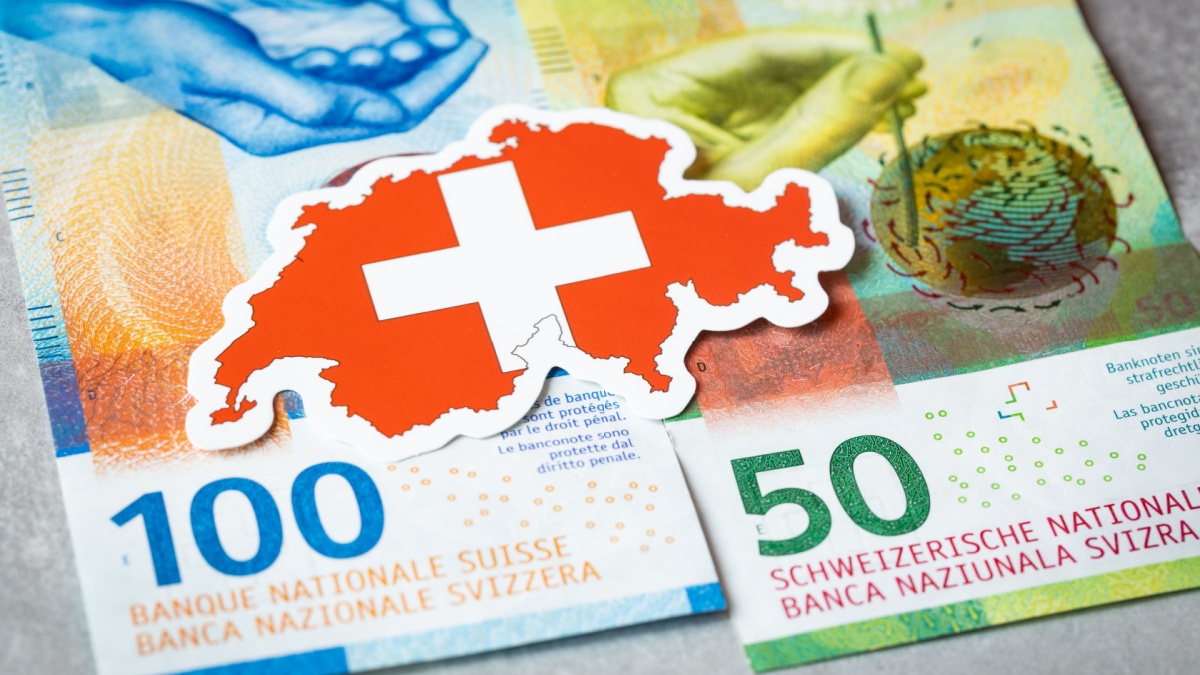Ski resorts in Switzerland: Best areas and resorts for Brits
Explore ski resorts in Switzerland for luxury, family holidays and group getaways. Get tips for packing, dining, staying safe and saving money with Wise.

Key takeaways:
Whether you’ll be going to Geneva for a city break, skiing down the Matterhorn in Zermatt, or browsing art museums in Basel, this guide is here to help you have a safe and memorable trip to Switzerland. We’ll lay out the key info on visa and entry requirements, health and safety essentials, laws and currency, money and customs and much more.
We’ll also show you a convenient and cost-effective way to spend in Switzerland – the Wise debit card. It’s designed for low-cost spending in 150+ countries. This clever international debit card automatically converts your pounds to Swiss francs whenever and wherever you spend, for low, transparent fees* and mid-market exchange rates.
Learn more about the Wise debit card 💳
Before you travel to Switzerland from the UK, you’ll need to know about the country’s entry requirements for UK nationals.1
Switzerland belongs to the Schengen Zone, which means you won’t need to apply for a visa in advance, and can stay in the country up to 90 days within a 180-day period. That means that you’ll need to keep evidence of when you arrived, whether that’s a stamp in your passport or printed out plane tickets.
This 90-day window applies not only to visits for tourism purposes, but also visiting friends and family, attending business meetings, cultural or sports events or short term studies or training.
Under the Schengen Area Rules, your passport will also need to have a ‘date of issue’ less than 10 years before the date you arrive. It should also have an ‘expiry date’ of at least three months after you plan to leave the Schengen Area.
Border control agents might also ask you to show a return or onward ticket as well as proof of travel insurance or that you have enough money for your visit, which is usually around 100 Swiss francs per day.
Switzerland is consistently ranked as one of the safest countries in Europe, not to mention the world.2 However, you’ll still need to take some common sense precautions.
While serious crime in Switzerland is low, there have been an increasing number of reports of petty theft, particularly in larger cities, at Geneva airport and on trains to and from Geneva, reports the UK’s Foreign, Commonwealth and Development Office (FCDO).
They advise travellers to be especially vigilant at airports, train stations and crowded areas, and not leave their bags unattended.3
From skiing to mountaineering, there are several seasonal risks associated with outdoor sports in Switzerland. Visit the FCDO‘s website for a comprehensive list.

All around Switzerland, you’ll be able to pay with the Swiss Franc (CHF). Some places, such as train stations and larger supermarkets, will accept Euros, although you’ll almost always receive change in Swiss Francs.
You can either exchange your British pounds directly, take money out of an ATM, pay with a debit or credit card or use mobile payment options such as Apple Pay.
You can change your British pounds for Swiss Francs at home in the UK, or when you arrive in Switzerland. Just make sure to get the best exchange rate by watching out for added fees/commission, which can be on the high side at hotels or airports.
Spending on a debit or credit card is also an option. Switzerland has plenty of ATMs, especially in larger cities, town centres, train stations and shopping centres. In German and Italian speaking areas, they’re called a Bancomat, whereas you’ll identify them as a Distributeur de billets in French-speaking Switzerland.
Some UK credit cards charge a transaction fee as high as 2.75 to 2.99 percent for purchases made in foreign currencies.4
Avoid getting hit with high fees and poor exchange rates at airports and other exchange houses by using the Wise debit card. You’ll then be able to spend in 40+ currencies by automatically converting your pounds at the mid-market exchange rate, only adding a tiny currency conversion fee* – or it’s free if you already have the local currency in your Wise account.
The debit card is now the most popular form of payment in Switzerland, although cash is also widely used -- especially in more remote areas and for leaving tips.5
Contactless payments are very common, so you should have no problem using your UK contactless card in most locations.
Just be sure to remember -- or jot down -- your pin, as you’ll usually need to enter it if you spend more than 80 CHF.
You can also use digital payments in most places, such as Google or Apple Pay, or the Wise virtual card.
For UK and all foreign cards, there’s usually a fee of 5-10 CHF to withdraw money from a Swiss ATM. Make sure you take out cash from a registered Swiss bank to avoid steeper fees.6
The cost of travelling in Switzerland can sometimes be steep, but getting to this beautiful Alpine country doesn’t have to be.
First of all, flight costs from the UK to Switzerland vary quite a bit depending on whether you take a direct flight, travel during the high season, or fly on a major route.
The timing during the week also matters, with booking comparison website Skyskanner listing Wednesday-Wednesday flights as significantly cheaper than those departing and returning at the weekend.
We’ll look at two of the major direct flight routes from the UK to Switzerland: London to Geneva and London to Zurich, both which take about one hour and 45 minutes.
A slightly off-season Saturday to Saturday roundtrip flight from London Gatwick (LGW) to Geneva will set you back as little as £75 with budget airline easyJet or £118 on British airways.
The same flight from London Gatwick to (LGW) to Zurich will cost around £95 with easyJet and £170 with British Airways. You can also find direct flights to these cities from Manchester, usually for at least £30 more than you’d pay flying out of London.7
We’ll also take a look at the general travel costs you can expect across three major cities in Switzerland, with a focus on accommodation at a mid-range hotel, dinner for two at a restaurant, and a public transport day pass.8
| Category | Bern | Geneva | Zurich |
|---|---|---|---|
| Accomodation at Mid-Range Hotel | £118 | £127 | £118 |
| Dinner for 2 | £87.32 | £110.3 | £110.3 |
| Public Transport (Day Pass) | £9.19 | £9.19 | £9.55 |
| Main Sights | Zytglogge clock tower; Bear Park; Zentrum Paul Klee | Jet d’Eau; St. Pierre Cathedral; Palais des Nations (UN) | Lake Zurich promenade; Grossmünster; Kunsthaus (Art house) Zürich |
You can avoid or minimize additional expenses in Switzerland by being aware of these hidden travel costs.
When you travel to Switzerland from the UK, you can expect the rules and customs to differ a bit from those back home. Below are some essential ones to look out for.
If you experience an emergency situation during your trip, these are the numbers to call12:
If in doubt about who to call in an emergency, 112 operates 24/7 and will connect you to the local authorities.
Be sure to keep the contact of your travel insurance provider handy in case you need to make a claim or require assistance.
Open a Wise account online and you can order the Wise debit card for a one-time fee of £7. You can use this clever card in 150+ countries, including Switzerland.
It automatically converts your pounds to local currency whenever you spend using the mid-market exchange rate, only adding a tiny, transparent conversion fee* – or it’s free if you already have the local currency in your Wise account.
Here are some of the most common questions asked:
After Brexit, UK phone carriers were no longer required to offer roaming services for free in the EU. Many still do up to a certain amount of data or roaming plan, however. O2 for example offers free EU roaming for up to 25 GB per month13 whereas Vodafone UK gives you the option to pay around £2 extra per day.14 Alternatively you can get an eSim card to avoid roaming charges.
In order to use your UK electronics in Switzerland, you’ll need a Type J plug adapter, which is compatible with a standard voltage of 230 V.15
While UK residents are not legally required to have travel insurance for Switzerland, taking out a policy is still highly recommended. Your GHIC (Global Health Insurance Card) grants access to state-provided healthcare in Switzerland but still doesn’t cover private medical treatment, emergency repatriation to the UK or trip cancellations, lost baggage or delays.16
Sources used:
Sources last checked on 23-Sept-2025.
*Please see terms of use and product availability for your region or visit Wise fees and pricing for the most up to date pricing and fee information.
This publication is provided for general information purposes and does not constitute legal, tax or other professional advice from Wise Payments Limited or its subsidiaries and its affiliates, and it is not intended as a substitute for obtaining advice from a financial advisor or any other professional.
We make no representations, warranties or guarantees, whether expressed or implied, that the content in the publication is accurate, complete or up to date.

Explore ski resorts in Switzerland for luxury, family holidays and group getaways. Get tips for packing, dining, staying safe and saving money with Wise.

Check out our in-depth guide on everything you need to know about buying a prepaid Switzerland SIM card, including different providers, pricing, and features.

What’s the best way to buy train tickets in Switzerland? A handy guide including step-by-step instructions and FAQs.

What's the best way to pay in Switzerland - cash or card? Read our handy guide on Swiss francs, cash etiquette, Swiss ATMs and using your UK card.

Switzerland is just a flight away. Learn how to shop tax-free and obtain a VAT refund in Swiss cities like Geneva and Zurich as a tourist.

Travelling to Switzerland? Find out everything you need to know about how to spend, and exchange money to Swiss francs. And, if you can use euros.